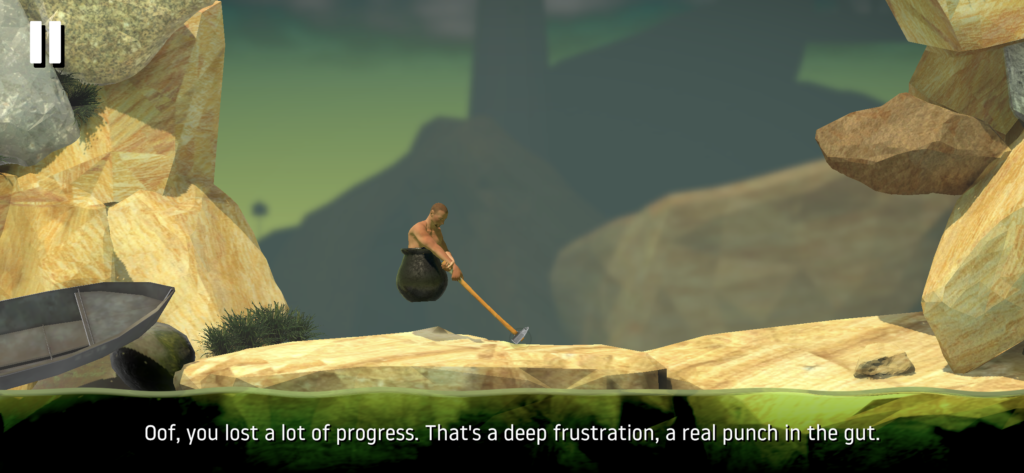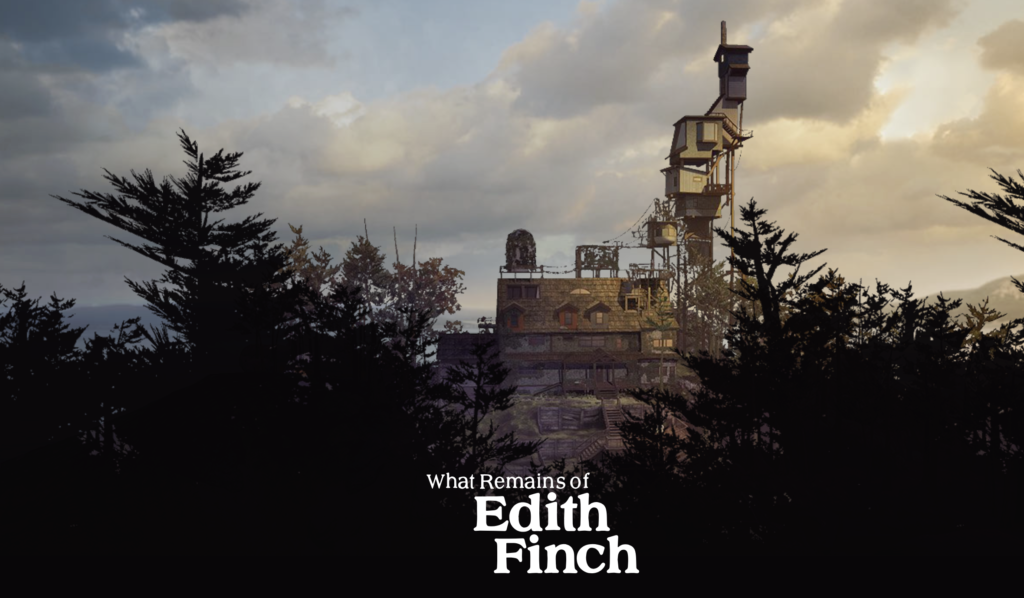
By the time I got around to Getting Over It with Bennett Foddy (which I’m playing on my phone using the touchscreen), I was well aware of the game’s reputation for inducing rage and frustration in its players. I had watched a number of Let’s Plays, in which gamers (particularly Markiplier) lost their cool, screaming in rage as they failed over and over again.
The game is based off a simple mechanic: a man in a cast-iron pot swings a hammer to climb the mountain — but its actual execution is exceedingly difficult. The hammer doesn’t swing the way you expect it to, and it takes a significant amount of trial and error to simply figure out how it functions and get over the first tree you encounter in the game. Not to mention the increasingly difficult challenges that lie ahead.
I’ll write a bit more about my ongoing struggle with trying to beat the game (I am very stuck at the moment) and how it makes me feel in another post. Short version: it is indeed frustrating, but in a way that I personally find oddly satisfying.
For the moment, I’d like to focus on the way Getting Over It approaches game writing — rather than providing a traditional narrative, the game presents a more philosophical approach. When the game opens up and the player faces the first obstacles, Bennett Foddy begins his narrations by warning the player about the challenges ahead:
